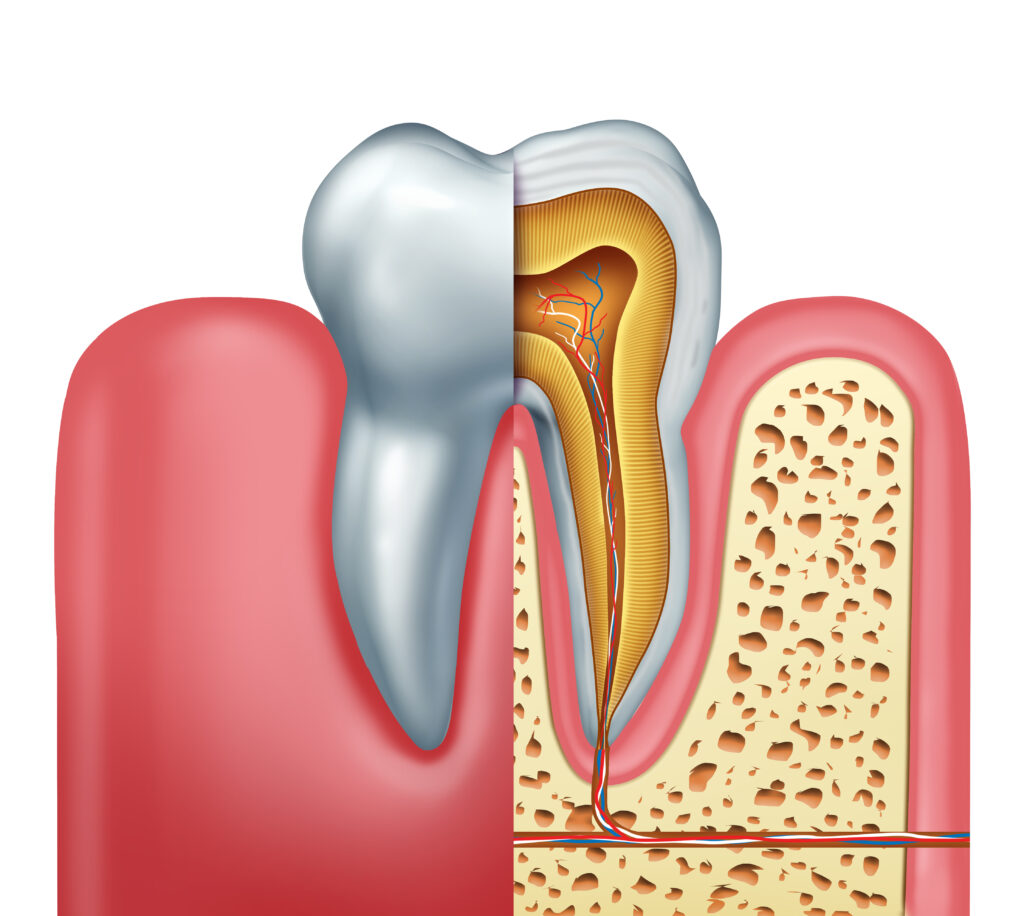How Do You Know If You Need a Root Canal?

Are you experiencing dental pain or discomfort and wondering if you need a root canal? This dental procedure is necessary when the pulp, the tooth’s innermost layer, becomes inflamed or infected. A root canal can help save a damaged tooth and prevent further complications. This article will explore how to tell if you need a root canal and what to expect from the procedure.
What is a root canal?
A root canal is a dental procedure that removes the damaged or infected pulp from a tooth. The pulp is the tooth’s innermost layer that contains blood vessels and nerves. When the pulp becomes inflamed or infected, it can cause severe pain and discomfort. A root canal is a way to save the tooth by removing the damaged pulp and filling the space with a biocompatible material.
How do you know if you need a root canal?
There are several signs and symptoms that can indicate the need for a root canal.
These include:
Severe tooth pain
If you are experiencing severe tooth pain, especially when you bite down or apply pressure to the affected tooth, it may be a sign that you need a root canal. This pain can be sharp, throbbing, or constant and can last for extended periods.
Sensitivity to temperature
If your tooth is sensitive to hot or cold temperatures, it may indicate an infected or inflamed pulp. This sensitivity can last for several minutes after exposure to the temperature.
Gum swelling
Inflammation or swelling of the gums around the affected tooth can indicate that the pulp is infected or inflamed. The swelling can be mild or severe and may be accompanied by tenderness or bleeding.
Discoloration of the tooth
If the affected tooth has turned a darker shade or appears gray, it may be a sign that the pulp is damaged. This discoloration occurs because the blood vessels in the pulp have died or are dying.
Bad taste or smell
If you are experiencing a bad taste or smell in your mouth, it may be a sign of an infection. This can occur if the pulp in your tooth is infected or inflamed, leaking pus into your mouth.
Loose tooth
If your tooth feels loose or unstable, it may be a sign that the infection or inflammation has spread to the supporting tissues and bone. This can cause the tooth to become loose and eventually fall out.
If you are experiencing any of these symptoms, visiting your dentist at Charles Ashley Mann and Associates as soon as possible is essential. They can examine your teeth and determine if a root canal is necessary.
What causes the need for a root canal?
Several factors can cause the need for a root canal, including:
Decay
Tooth decay can cause the pulp to become infected or inflamed. If left untreated, the decay can spread to the root canal, making a root canal necessary.
Trauma
A traumatic injury to the tooth can cause the pulp to become damaged or infected. This can occur if the tooth is hit, cracked, or chipped.
Dental procedures
Repeated dental procedures, such as fillings, can cause the pulp to become inflamed or infected. This can occur if the filling is deep or if there are multiple fillings in the same tooth.
Gum disease
Gum disease can cause the supporting tissues and bone around the tooth to become infected or inflamed. This can lead to the need for a root canal if the infection spreads to the pulp.
What happens during a root canal?
A root canal is performed by an endodontist or a dentist specializing in treating the inner part of the tooth. The procedure typically involves the following steps:
Anesthesia
Before the procedure, your dentist will administer a local anesthetic to numb the area around the affected tooth. This will help alleviate any pain or discomfort during the procedure.
Access
Once you are numb, your dentist will make an opening in the top of your tooth to access the pulp chamber.
Removal of pulp
Your dentist will remove the damaged or infected pulp from the tooth. They will also clean and shape the root canals to prepare for filling.
Filling
After the root canals are cleaned and shaped, your dentist will fill them with a biocompatible material, typically gutta-percha. This material seals the canals and prevents further infection.
Crown placement
After the root canal, your dentist will place a crown or a filling on the tooth to restore its strength and function. The crown or filling will also protect the tooth from further damage.
What can you expect after a root canal?
After a root canal, you may experience some discomfort or sensitivity for a few days. Your dentist may prescribe pain medication to alleviate any pain or discomfort. Following your dentist’s instructions for caring for your tooth after a root canal is essential. You may need to avoid certain foods and beverages and practice good oral hygiene to prevent further infection.
Frequently asked questions
How long does a root canal take?
Depending on the case’s complexity, a root canal typically takes one to two hours.
Is a root canal painful?
Most patients report minimal pain during a root canal due to the local anesthesia used. However, you may experience some discomfort after the procedure.
How long does it take to recover from a root canal?
Most patients recover from a root canal within a few days. You may experience some sensitivity or discomfort for a few days after the procedure.
How much does a root canal cost?
The cost of a root canal varies depending on the case’s complexity and the tooth’s location. It is best to check with your dental insurance provider to determine your coverage.
Can I avoid a root canal?
Maintaining good oral hygiene, such as brushing and flossing regularly, and visiting your dentist for regular check-ups can help prevent the need for a root canal.
Conclusion
If you are experiencing severe tooth pain, sensitivity to temperature, gum swelling, discoloration of the tooth, bad taste or smell, or a loose tooth, it may be a sign that you need a root canal. A root canal is a necessary dental procedure to help save a damaged tooth and prevent further complications.
If you are experiencing any of these symptoms, it is essential to visit our team here at Charles Ashley Mann DDS and Associates as soon as possible to determine if a root canal is necessary.
Ready to schedule your root canal consultation? Contact us today to learn more and book your appointment!
- Call us at 919-462-9338
- Email us at admincary@smilemann.com
Charles Ashley Mann DDS and Associates help people smile in Cary, Garner, and Fuquay-Varina, NC.



